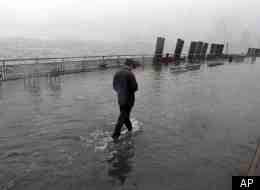Speaking Ill of the Dead
People who are in the public eye – politicians, athletes, performers – are used to being misrepresented in the press. It comes with the territory. Their lives – and deaths – are under a microscope.
Amy Winehouse. Michael Jackson. Heath Ledger. Speculation about the cause of death – and their lifestyles – fueled the tabloids for week. People popped up out of nowhere – childhood classmates, neighbors, former lovers – offering titillating details, though the accuracy was often questionable. It’s hard to sort the truth, and those who knew them best must be incredibly angry, but not surprised.
When there is a natural disaster (earthquake, hurricane, tornado) or an act of violence (drive-by shooting, bombing, car accident), the lives of everyday people are subjected to scrutiny. The average person is not used to this. So if their death is misrepresented in the press, it’s a situation for which their family and friends are unprepared.
As I write this, news stations are reporting that over 20 people died during Hurricane Irene. And as horrible as that is for their family and friends, now there will be a discussion about how their deaths could have been avoided.
“They were stupid to go surfing.”
“They should’ve evacuated.”
Really? They deserved to die?
It may be very true that they made a conscious decision that resulted in their death, but it’s doubtful that they intended suicide. More likely, they were just no match for the force of the hurricane.
But speculating about their sanity accomplishes nothing other than bringing additional, unnecessary pain to their family and friends.
So if you are tempted to say something along the lines of, “well, they should’ve known better”, as if they got what they “deserved”: don’t. Consider for a moment how you’d feel if strangers were criticizing the friend you grieve. Don’t make anyone else feel that kind of anger.


